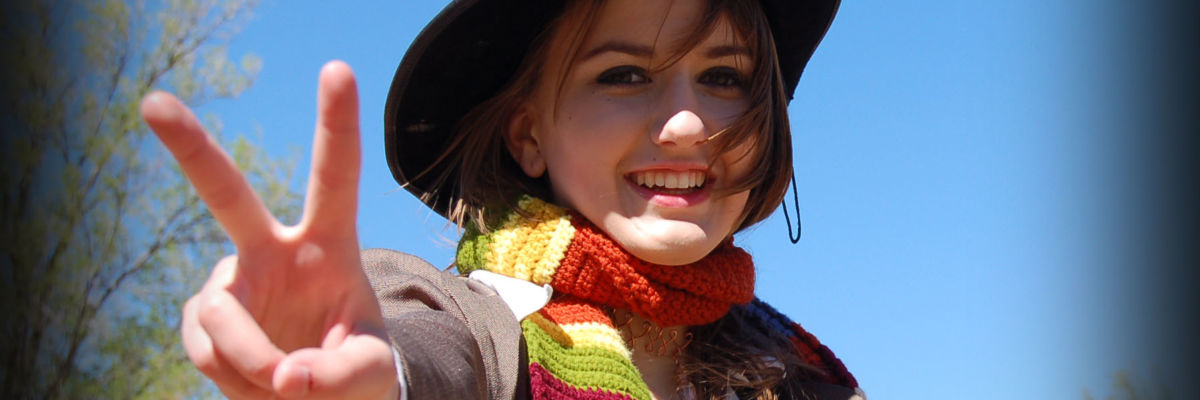
The creators of the iconic British science fiction show Doctor Who were not only long on imaginative whimsy but well-supplied in business savvy. The title character, a time-traveling alien with two hearts and a soft spot in both of them for adventurous Earth women, possesses the ability to regenerate himself after death—taking on a new body and personality traits but retaining his knowledge, memories, and so on.
The practical upshot of a character with a potentially infinite number of faces is obvious. Should the fellow playing this year’s Doctor gain thirty stubborn pounds, or get in a contract snit, or lose a finger in a bailer accident, you can replace him with someone completely different and not violate the continuity of the series. Like the character, the show can also be, theoretically, immortal. And so this year we find Doctor Who in its record thirty-fourth year and featuring its eleventh lead actor.
When news came recently that number twelve would debut this Christmas, a squeal of anticipation erupted from (my house and) mother’s basements everywhere, and the interwebs lit up with fervent speculation. This time, however, the speculation is not simply about the actor and his temperament, but over the character’s sex: Could he, for the first time, regenerate into a she?
Not every TV writer or fan-blogger is sold on the idea of a lady Doctor, but I have found not one who objects on philosophical grounds: that is, because the Doctor simply is a man—even if the kind of man he is changes every three years or so. The tacit (or sometimes express) assumption is that maleness is not part of what someone essentially is; and so, if you happen to be an alien who takes on a new form when you die, even though you retain your essential being you can still change “gender.” Your sex is as accidental and thus as fluid as your height or eye color.
These people need to heed the words of Pope Benedict XVI:
[I]t is now becoming clear that the very notion of being – of what being human really means – is being called into question. [The chief rabbi of France] quotes the famous saying of Simone de Beauvoir: “one is not born a woman, one becomes so” (on ne naît pas femme, on le devient). These words lay the foundation for what is put forward today under the term “gender” as a new philosophy of sexuality. According to this philosophy, sex is no longer a given element of nature, that man has to accept and personally make sense of: it is a social role that we choose for ourselves, while in the past it was chosen for us by society. The profound falsehood of this theory and of the anthropological revolution contained within it is obvious. People dispute the idea that they have a nature, given by their bodily identity, that serves as a defining element of the human being. They deny their nature and decide that it is not something previously given to them, but that they make it for themselves.
I’ve mused before in this space about how we repeat the sin of our first parents by claiming authority over areas, such as the moral structure of the universe, that belong to God. In this case, Benedict reminds us that the sexual duality of mankind is “ordained by God” and so must not—indeed, cannot—be re-ordered. When society denies the sexual duality of human nature and thus supplants the divine prerogative with its own, when we say, “I am not as I was made but as I will myself to be,” we forfeit not only the idea of sexual complementarity but the subsequent basis for marriage and the family.
In fact, when we deny our nature we deny our dignity, and thus destroy justice: law, morality, human rights, all of it. If what we are is merely a product of our will, then we can’t say that there’s something inherent in all of us that demands its due. Moral anarchy follows.
And, since this problem isn’t isolated to science fiction, we get a fair bit of cultural silliness, too. Here in the land of fruits, nuts, and flakes, Assembly Bill 1266 will, if it becomes law, require public schools to let students use the sex-designated bathrooms and locker rooms of their choice, according to the “gender” they have chosen for themselves and not the irrelevant sexual organs they might been stuck with. This despite (shocking, shocking) reports from trial areas that the policy can create discomfort for students and lead to voyeurism and abuse.
The Catholic solution to all this nonsense is summed up in one of the most basic useful principles of that brilliant (if occasionally abstruse) collection of addresses from Pope John Paul II called the Theology of the Body:
The body expresses the person. The relation between “us” and our flesh is never accidental or incidental. Our souls and our bodies are partners, never—as gender theory asserts—strangers or even enemies.
What a profound relief to be plugged back in to our objective human nature and all that follows from it! In one simple sentence we’re rescued from the prospect of lady Doctors, male mommies, and transgender peeping Toms. And worse: from the false and terrible freedom of believing we can create ourselves.



